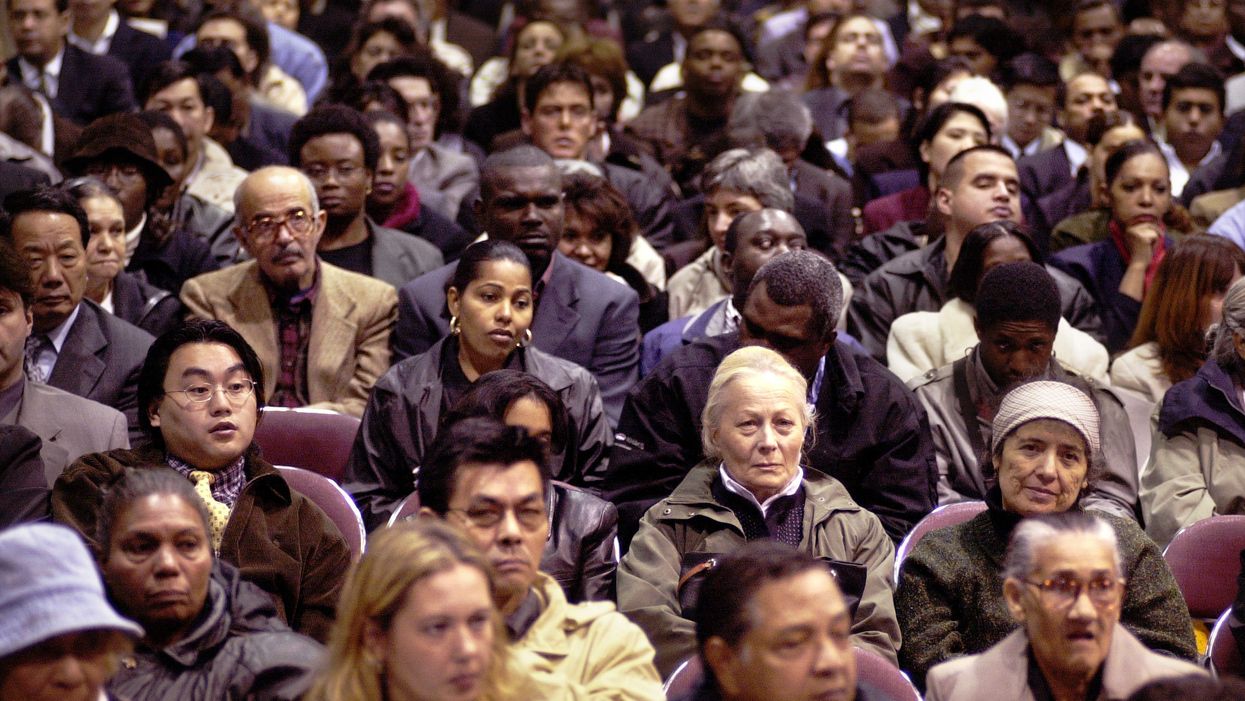Molineaux and Nevins are co-founders of the Bridge Alliance, a coalition of 100 democracy strengthening organizations. (Disclosure: The Bridge Alliance Education Fund is a funder of The Fulcrum.)
As we look to history, it has always been the mystics and scientists, innovators and outliers who saw the future most clearly and acted to push — or call — society forward, to awaken from our slumber of the way things are and envision a better future. The stories of their personal transformation inspire us to be better individually and collectively. With this inspiration, we can and must transform our nation into a more perfect union.
As co-founders of the Bridge Alliance, we are inspired and challenged by the problems facing our country. Our 100 member organizations work daily to protect the ideals of our American Dream so we can create healthy self-governance that has never fully existed before. Our members work to harness the tension of our differences as we enact our inalienable right to life, liberty and the pursuit of happiness, balancing individual and community needs.
Our constitutional republic and democratic ideals are being challenged daily — from our own actions to foreign influence campaigns. In our search for healthy self governance, we must put country before party or self-interest as we explore solutions to the complex problems facing our nation and the world. Doing so will not only make our government more effective but it will also strengthen the soul of who we are as a country.
Decades of work by cross-partisan practitioners, while having many successes and garnering the support of millions of Americans, has had limited impact on the social fabric as a whole, and we have watched our public discourse degrade into a raw power struggle.
The struggle continues despite the deep love for our country that we believe many or most Americans share. As we witness the division separating us as a people, we are reminded of a dysfunctional family: We take sides, blame others and treat each other without love or a sense of empathy. How effective could we be if we took a stand for the health of our national family?
Taking a stand means having an understanding that we are a diverse nation and to thrive as a people we must provide room for more diverse perspectives. At our summit last October, this was generally agreed upon, yet we realized that the democracy reform field itself lacks diversity. It is currently a mostly white, older and progressive-leaning; people of color, conservative thinkers, youth and the LGBTQI community are underrepresented.
The Bridge Alliance immediately set out to address this problem as an important component of our 2019 strategic plan. We created a diversity and opportunity task force to study the problem and establish a process for ensuring the democracy field becomes genuinely diverse and representative of the country as a whole.
Diversity and Opportunity — meaning diversity with regard to race/ethnicity, sex/gender, social identity, religion, ideology and age — will be the operating system of the October 2019 summit. Diversity is often the topic of such meetings — but our meeting topic is living into a multicultural, pluralistic democracy. We will discuss how we are going to create it within a diverse community and just do it. So it's the operating system, not the objective of the meeting. We believe that, for the Bridge Alliance and the cross-partisan movement to be more impactful as we plan for 2020 and beyond, we must truly reflect the diversity that defines America.
But we can't do this alone! We are asking citizens (meaning you) to help us.
These words by Langston Hughes, a great African-American poet, have never been more relevant than they are today: "America never was America to me/And yet I swear this oath/America will be!"
We can and must embrace our diversity as the operating system of our nation. Despite our many frailties, America is exceptional because from the outset its citizens saw themselves as participants in an experiment that would have implications for all of mankind. Our task is far from complete.
Send us your story (written or video link) that you want to tell the children and grandchildren of our future to story@BridgeAlliance.us. We are developing a scrapbook for the future story of America that may be used to inspire participants at our summit.
What is your oath today? What will America be for our children and grandchildren? What stories will you tell them? The journey that is the United States was started by visionaries, scientists, mystics and outliers more than 200 years ago with the motto e pluribus unum: Out of many, we are one. America is exceptional because it was launched with a dream to take the diverse many and make them one. Let us fulfill this dream.
The journey will never end.

















 "On the Frontlines of Democracy" by Nonprofit Vote,
"On the Frontlines of Democracy" by Nonprofit Vote,

Trump & Hegseth gave Mark Kelly a huge 2028 gift